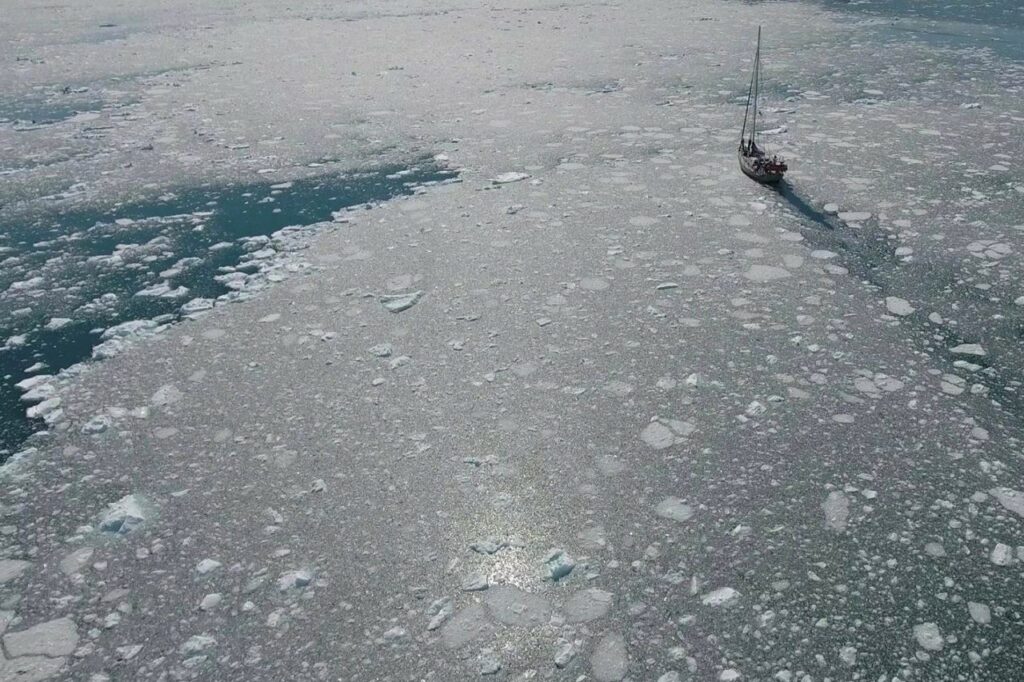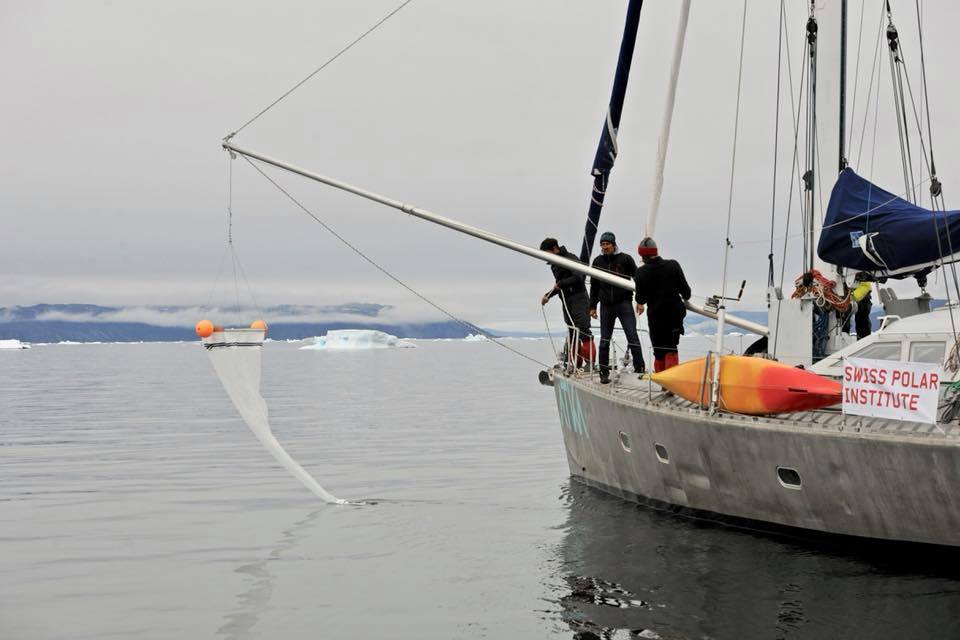ATKA, which means « icebreaker » in the Inuit traditional language, is a 50 feet sailboat fully equipped to sail in the Polar Regions. Owned by François Bernard, who is also the expedition leader, this relative small boat (6 passengers) compared to usual scientific platforms constitutes a key asset to navigate and explore costal environments, especially the ones in shallow waters.
During the last 2-years, ATKA sailed along the Greenland ice sheet. ATKA is presently undertaking its second campaign in the Arctic.
Two scientific campaigns are part of the ATKA circumnavigation expedition of the Arctic Ocean. The first one took place during the summer of 2018. ATKA sailed through the mythic Northwest Passage, discovered by Roald Amundsen (1903/1906). The second part of the mission will take place during the summer 2019. ATKA will then sail the less explored North-East Passage along the route discovered by Adolf Erik Nordenskiöld (1878/1879).

Science projects
Arctic Ocean microplastics identification and quantification

The TARA expedition (2013) revealed that the repartition of microplastics (MP) in the Arctic water was not homogenous. More samples need to be collected to improve our understanding of the transfer mechanisms into the ecosystems and living organisms. One of the objectives of the ATKA expedition is to collect surface MP samples to better assess the abundance and distribution of MP in the Arctic regions. The samples collected will be compared with the study performed by Cózar at al. (2017), based on the samples collected by the TARA mission.
Identification of hybrid copepods between C. finmarchicus and C. glacialis
Several species are changing their behaviour and distribution in order to adapt to climate change. Boreal species are slowly extending their distribution further north at the expense of arctic species. A turnover of arctic to boreal species might occur. In some cases, species of the same gender can hybridize with each other. This hypothesis is being tested through the analysis of Calanus finmarchicus and Calanus glacialis, two different copepods living in the boreal and arctic waters, respectively. The ATKA expedition offers an ideal opportunity to sample copepods and study their eventual hybridization.
Characterization of benthic communities around the HMS Erebus and the HMS Terror wreck sites
Most studies on artificial reefs take place in warm waters. The discovery of the HMS Erebus and HMS Terror, which sank in 1848 in the arctic waters, represents a unique opportunity to assess communities associated to an artificial reef for two main reasons. First, the reef has been there for a long time and the communities are established. It represents a unique chance to determine whether the reef has become a hot spot of biodiversity. Secondly, its unusual location offers the possibility to understand artificial reefs in arctic or Polar regions.